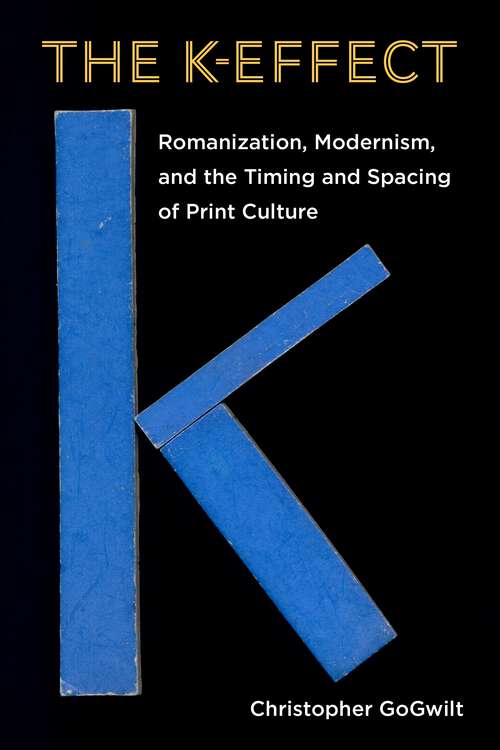
The K-Effect: Romanization, Modernism, and the Timing and Spacing of Print Culture
General non-fiction, Criticism, Politics and government
Synthetic audio, Automated braille
Summary
The K-Effect shows how the roman alphabet has functioned as a standardizing global model for modern print culture. Investigating the history and ongoing effects of romanization, Christopher GoGwilt reads modernism in a global and comparative perspective, through the works of… Joseph Conrad and others. The book explores the ambiguous effect of romanized transliteration both in the service of colonization and as an instrument of decolonization. This simultaneously standardizing and destabilizing effect is abbreviated in the way the letter K indexes changing hierarchies in the relation between languages and scripts. The book traces this K-effect through the linguistic work of transliteration and its aesthetic organization in transnational modernism.The book examines a variety of different cases of romanization: the historical shift from Arabic script to romanized print form in writing Malay; the politicization of language and script reforms across Russia and Central Europe; the role of Chinese debates about romanization in shaping global transformations in print media; and the place of romanization between ancient Sanskrit models of language and script and contemporary digital forms of coding. Each case study develops an analysis of Conrad’s fiction read in comparison with such other writers as James Joyce, Lu Xun, Franz Kafka, and Pramoedya Ananta Toer. The first sustained cultural study of romanization, The K-Effect proposes an important new way to assess the multi-lingual and multi-script coordinates of modern print culture.